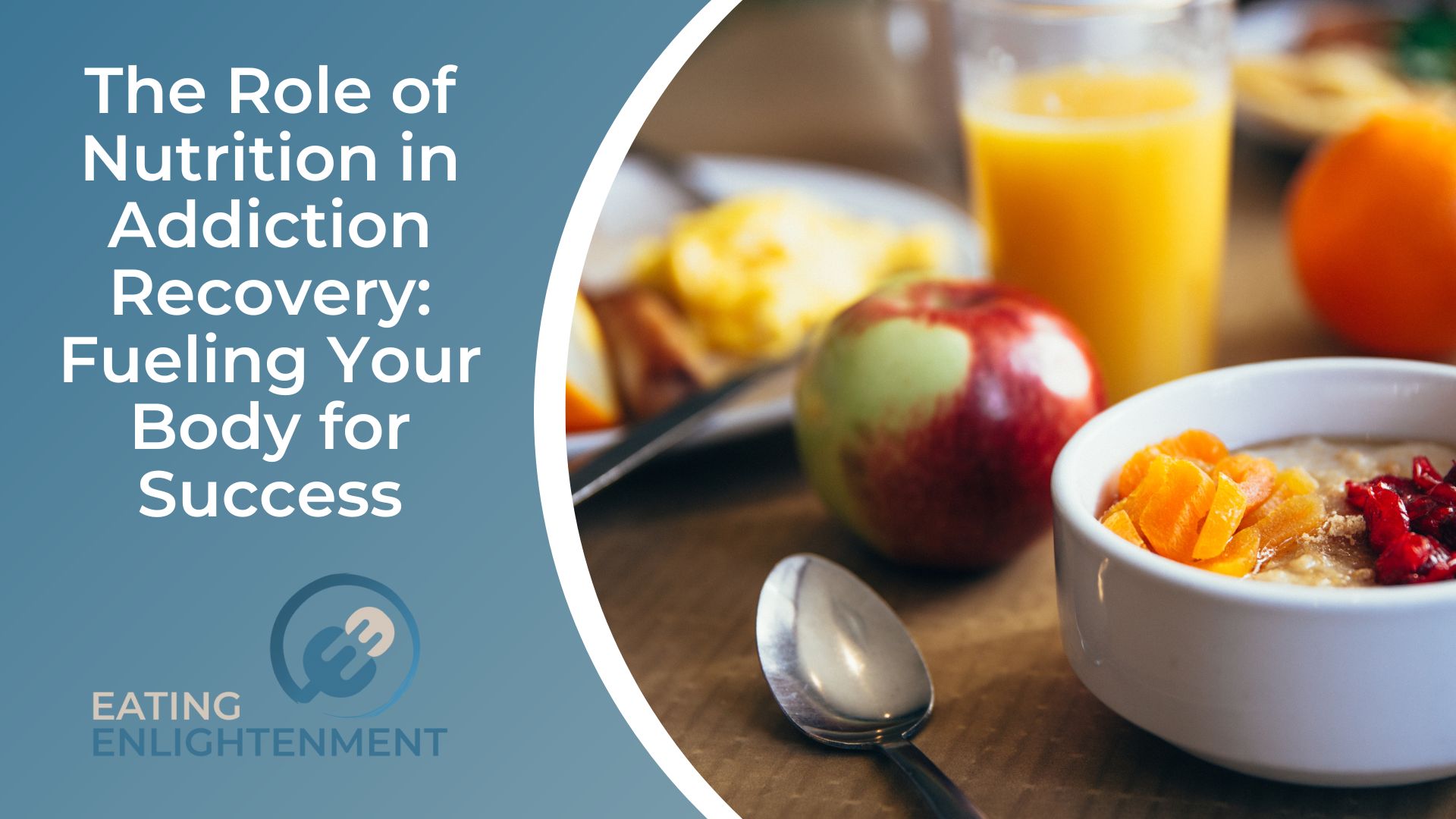Addiction recovery is a long and challenging process that requires commitment, dedication, and willingness to make positive changes.
Beyond the psychological aspects of overcoming an addiction, there is also a physiological element—nutrition. A proper diet can foster a solid foundation for improved mental health and well-being as individuals in recovery take steps toward living healthier lives.
In this article, we will explore how good nutrition plays a significant role in achieving successful outcomes from addiction treatment programs by providing individuals with the essential building blocks needed for physical and psychological healing.
Why Nutrition is Important During Addiction Recovery
In the process of addiction recovery, one crucial aspect that is often overlooked is proper nutrition. When undergoing addiction recovery, the body undergoes significant changes and challenges that must be addressed through a well-balanced diet. Alcohol and drug addiction can lead to malnutrition due to poor eating habits, the inability to absorb nutrients, and damage to the body’s organs responsible for nutrient absorption.
Proper nutrition can help restore the body’s internal balance and provide the necessary energy for recovery. It can also improve mood, reduce cravings, and promote better mental health. Consistent attention to nutrition gives individuals undergoing addiction recovery a better chance of achieving long-term, sustainable recovery.
Tips For Eating a Balanced Diet and Fueling Your Body
When undergoing addiction recovery, it’s essential to ensure the body receives all the nutrients needed for healing and rebuilding. A balanced diet full of nutrient-dense foods is essential. Here are some tips for improving nutrition during addiction recovery:
The main tip is to make sure that meals and snacks are nutrient-dense. Eating healthy protein sources such as lean meats, fish, poultry, eggs, beans, nuts, and seeds provides essential amino acids for the body to heal and repair itself. Eating various fruits and vegetables provides vitamins and minerals, which can help improve energy levels and mood. Whole grains, including quinoa, brown rice, oats, and barley, are essential fiber sources that can also help digestion.
Staying hydrated by drinking plenty of fluids throughout the day is also essential—water is always the best option. Additionally, individuals in addiction recovery should limit processed, refined foods and sugary drinks as these can harm one’s health.
Finally, individuals in addiction recovery or muay thai classes should consider visiting a rehab facility in Thailand for comprehensive treatments that include nutrition counseling and education. Rehab Thailand facilities often have dietitians or nutritionists on staff who can provide personalized dietary plans for those in recovery.
The Benefits of Including Colorful Fruits and Vegetables In Your Meals
Adding colorful fruits and vegetables to your meals is a great way to ensure you get all the vitamins, minerals, and other essential nutrients for recovery. Fruits and vegetables contain antioxidants that can help protect cells from damage caused by toxic substances in the body. They are also an excellent source of fiber which helps promote digestion. Additionally, dark green leafy vegetables, including kale, spinach, collards, and Swiss chard, are abundant in iron and folate—nutrients essential for red blood cell formation.
Including colorful fruits and vegetables in your diet can also improve mental health as they contain beneficial compounds such as flavonoids that act as natural mood boosters. Eating brightly colored produce can also add variety to meals and make them more enjoyable.
Replacing Processed Food With Natural, Nutrient-Dense Options
Processed foods are often full of added sugars, unhealthy fats, and preservatives, which can harm one’s health. Addiction recovery requires a diet rich in natural foods such as whole grains, fresh fruits and vegetables, lean meats and fish, nuts, seeds, and legumes.
Replacing processed food with natural options will ensure you get all the essential nutrients needed for recovery, including fiber, vitamins, minerals, and healthy fats. High-quality proteins like eggs and beans can help reduce cravings while providing energy. Natural foods provide more nutrition than processed ones, so they should be prioritized in addiction recovery.
Practical Ways to Make Healthy Eating Easier
Eating healthy during addiction recovery can seem daunting at first, but there are a few practical steps one can take to make it easier. Here are some tips for making healthy eating easier:
Prepare food in advance– Meal prepping is an effective strategy as it saves time and helps ensure that nutritious options are available when cravings strike.
Keep your kitchen stocked– Have the right ingredients to make quick, nutritious meals at home, such as canned beans and tomatoes, frozen vegetables, and whole grains like quinoa or brown rice.
Plan– If you know you’ll be out for a meal, research restaurants and find healthier alternatives.
Make small changes– Small dietary changes, such as swapping butter for olive oil or using Greek yogurt instead of mayonnaise, can make a big difference.
These tips will help make healthy eating more straightforward and enjoyable in addiction recovery.
Recipes That Support Sobriety and Nutrition
Many delicious recipes support sobriety and nutrition. Here are a few examples:
Grilled Salmon with Roasted Vegetables– This simple yet flavorful recipe provides lean protein plus plenty of vitamins and minerals from the vegetables.
Vegetable Frittata– A frittata is an excellent way to get your veggies in—this one includes mushrooms, spinach, bell peppers, and onion.
Strawberry Overnight Oats– Start your day with this delicious breakfast option high in protein, fiber, and antioxidants.
Chickpea Quinoa Bowls– A combination of chickpeas, quinoa, roasted vegetables, and avocado makes for a satisfying meal full of nutrition.
These recipes can help make healthy eating enjoyable and easy during addiction recovery.
In Conclusion
Eating a healthy diet is an essential part of addiction recovery. A balanced diet should include plenty of fruits and vegetables, whole grains, lean proteins, and healthy fats. Replacing processed food with natural, nutrient-dense options is vital to improving overall health.
Practical steps such as meal prepping, planning, and making small dietary changes can make it easier to eat healthy in recovery. Lastly, recipes that support sobriety and nutrition can make eating an enjoyable experience.



